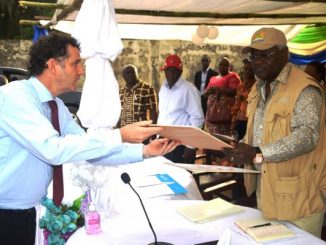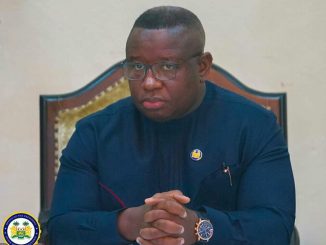CHOGM – Winners And Losers
The Chogm Business Forum in Kampala might have opened opportunities for Uganda but apart from President Museveni, no Ugandan technocrat or minister was on hand to advance the country’s interests
The Commonwealth Business Forum ended successfully last week, especially so for every businessman that was in attendance.
Zain Group, the owners of Celtel, for example, made a very impressive show of their organisation at a gala lunch they hosted at the Sheraton Hotel. Barclays Bank Chairman Gary Hoffman equally managed to sell his Bank exceptionally.
The political businessmen at the Forum, however made the most significant effect on the participants.
Our very own President Yoweri Museveni gave a passionate speech on the need for economic transformation.
He pointed out the need for empowerment of the populations; not just growing populations that he has always advocated for but the need for a bigger and economically empowered ones in Africa.
The applause from the audience left no doubt that he had been appreciated.
President Museveni’s move to sell his country was however let down by lack of presence of the technocrats and ministers in his government at this great event.
Scanning through the room he chanced on Uganda Investment Authority Executive Director Maggie Kigozi who he promptly introduced and instructed to ensure the business people knew her, just to be sure that the investors knew who to talk to.
But where were the ministers, the members of Parliament and the technocrats? Was the opportunity to talk to some of the world’s leading business brains not of any importance to them?
Some ministers like Finance Minister Ezra Suruma and Prof. Ephraim Kamuntu were in attendance but just for a while. Did you not envisage lessons to learn from people that have turned small companies to the world’s biggest empires?
Or even so from presidents like Bharrat Jagdeo, who as finance minister of Guyana in 1993, managed to cut his government’s budget reliance on debt from over 90 per cent percent to just 5 per cent?
Let’s leave the economics and talk about leaders that exhibited passion about their countries.
President Paul Kagame of Rwanda, for instance, may not be a member of the Commonwealth but the benefits his country will reap from the Commonwealth cannot be under estimated. For the three days he camped at the Business Forum, Kagame came well prepared. He knew what he wanted and clearly came to Kampala with a mission and strictly for business.
Kagame talked about issues like having a public a service that is more accountable, having their work assessed in terms of weeks or hours of work done.
What miracles this would perform for a country like Uganda?
Long delays at border posts and the invisible barriers between countries that are hampering trade were also another concern he raised.
These not withstanding, Kagame will early next year host officials from the Commonwealth Business Council in Kigali to discuss recommendations made by the forum.
This is a big step taken, especially so by a non-Commonwealth country and the strategic approach by the President is evident. President Kagame also took a moment to talk to business executives in person.
At one of the diners, his bodyguards were not seen anywhere around him and he took time to take business cards and personally woe these men to invest in his country. The passion of the leaders here to woe investors into their countries and the passion by the businessmen was very strong.
Talk about President Bharrat Jagdeo of Guyana who came from the airport to the forum. He took time to sell his country, dispel myths about countries that have had troubled pasts and urged his fellow heads of state to tell the good success stories of the developing countries.
Ernest Bai Koroma of Sierra Leone did nothing but talk about the democratic transformation of his country and its vast untapped potential. In his appeal, he made it clear that his country is willing to put its turbulent past behind and in fact, he is planning to host the world’s cream businessmen to a diner in his country to foster business interests further. We are talking about leaders that are passionate about their countries; passionate to see change in their countries!
President Jagdeo talked about what his country needs to transform itself and lift up its peoples. Top on the agenda was to further reduce his country’s debt burden which he said to him was as an “obsession”! This comment left many Ugandans asking, do we have ministers who ever get “obsessed” with the need to change certain things in their ministries!
Do we have leaders who do not hold titles simply to enjoy living in the high society but who genuinely believe in true leadership? There are people, of course, who gave their best in this historical business forum that must be commended. The Private Sector Foundation did a good job and even facilitated its members from as far as Mbarara and gave them the opportunity to attend the forum.
The Uganda Wild Life Authority also did a commendable job in promoting the country, to mention, but a few. President Museveni, Dr Margie Kigozi and the tireless James Mulwana tried their best to promote Uganda during this forum, but even then the case for industrialisation was packaged in generalities than broken down opportunities that the serious businesspeople would remember after returning home.This is where the technical people and other leaders would have been expected to pitch in after the President had spoken. Their absence did the country a lot of injustice.
The presence of Celtel staff was more evident and felt than the presence of our government leaders. Uganda could have simply set the stage for other countries to foster their business interests, while our officials and MPs enjoyed the public holidays.



